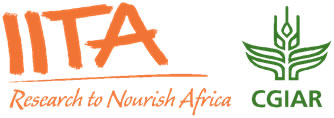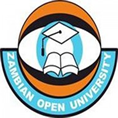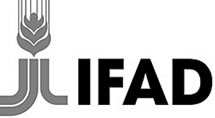
![]()
Our Partners
 The Federal Government of Nigeria is the federal government for the Federal Republic of Nigeria, a federation in West Africa, composed of 36 states, who share sovereignty with the federal government and 1 federal territory administered solely by the federal government. The federal government is composed of three distinct branches: legislative, executive, and judicial, whose powers are vested by the Constitution of Nigeria in the National Assembly, the President, and the federal courts, including the Supreme Court, respectively.
The Federal Government of Nigeria is the federal government for the Federal Republic of Nigeria, a federation in West Africa, composed of 36 states, who share sovereignty with the federal government and 1 federal territory administered solely by the federal government. The federal government is composed of three distinct branches: legislative, executive, and judicial, whose powers are vested by the Constitution of Nigeria in the National Assembly, the President, and the federal courts, including the Supreme Court, respectively.
 The International Institute of Tropical Agriculture (IITA, www.iita.org) is an Africa-based international not-for-profit research-for-development organization, established in 1967, and governed by a board of trustees. IITA is a member of the CGIAR Consortium, a global research partnership for a food secure future. IITA’s mission is to offer a leading research partnership that facilitates agricultural solutions for hunger, poverty, and natural resource degradation throughout the tropics. IITA has over 200 internationally recruited staff and around 1000 support staff based in various IITA stations across Africa. IITA’s mission is in line with that of the new CGIAR and focuses on the four system-level outcomes (SLOs); (1) increase in food security, (2) reduction of rural poverty, (3) reduction of under-nutrition, and (4) more sustainable management of natural resources.
The International Institute of Tropical Agriculture (IITA, www.iita.org) is an Africa-based international not-for-profit research-for-development organization, established in 1967, and governed by a board of trustees. IITA is a member of the CGIAR Consortium, a global research partnership for a food secure future. IITA’s mission is to offer a leading research partnership that facilitates agricultural solutions for hunger, poverty, and natural resource degradation throughout the tropics. IITA has over 200 internationally recruited staff and around 1000 support staff based in various IITA stations across Africa. IITA’s mission is in line with that of the new CGIAR and focuses on the four system-level outcomes (SLOs); (1) increase in food security, (2) reduction of rural poverty, (3) reduction of under-nutrition, and (4) more sustainable management of natural resources.

The Centre for African Entrepreneurship and Leadership (CAEL) was conceived from the University of Wolverhampton Business School (UWBS) coordinates capacity building activities that focus on entrepreneurship and leadership, and provides opportunity for evidenced-based research and policy for Africa.
CAEL serves the wider African communities in a programme of Africa-based entrepreneurship, connecting groups and institutions with Faculties and business support units within the University for the purpose of developing sustainable schemes for SMEs growth, graduate and youth employment and women empowerment.
In the University of Wolverhampton, there are over 500 courses to choose from, which are delivered across the 18 Schools and Institutes. The University of Wolverhampton’s attractive offering to students from around the world includes 96% graduate employability, teaching informed by world-leading research, strong business links, and state-of-the-art facilities.
The institution is guided by ‘Innovation and Opportunity’, which is their coat of arms’ motto.
Vision
Resilient African agriculture and food systems, securing prosperity and health for all.
Mission
To build resilient food systems across Africa through the creation, implementation and assessment of food, agriculture and natural resources policies that are both evidence-based and developed in partnership with non-state actors.
 Zambian Open University provides quality university education through the provision of open distance education. The university is internationally recognized and is one of the leading higher education providers that offer quality education. It uses creative and innovative learning methodologies aimed at reaching diverse constituencies for promoting social and economic development. The university provides programmes that include undergraduate courses, postgraduate courses and specialty programmes.
Zambian Open University provides quality university education through the provision of open distance education. The university is internationally recognized and is one of the leading higher education providers that offer quality education. It uses creative and innovative learning methodologies aimed at reaching diverse constituencies for promoting social and economic development. The university provides programmes that include undergraduate courses, postgraduate courses and specialty programmes.
Zambian Open University (ZAOU) is a private university founded in 2002. It is a member of the Association of Commonwealth Universities
Vision
To be an internationally recognized Open University providing quality education through distance learning
Mission Statement
Leading high education provider using creative and innovative learning methodologies aimed at reaching diverse constituencies for promoting social and economic development
Values
The Founders of ZAOU cherish five values summed in acronym PHIGS;
- PATRIOTISM- it is a commitment of ZAOU and its students to help free Zambia from negative experiences such as poverty, hunger ,disease, and make it a better place to live in. this also recognizes the contribution of the founding fathers and mothers to the liberation of the country from colonial bondage
- HONESTY- it is based on unconditional trust, free of corrupt tendencies and behaviors
- INDUSTRY or HARDWORK- it is a call to all students and staff to commit themselves to hard work and cherish the perseverance that characterized the hard work the founders put in to create ZAOU.
- GENEROSITY- it is a desire of ZAOU to give back something to the larger society. ZAOU itself is a gift to the Larger Zambian society as a treasure of knowledge and Wisdom.
- SELF-DIRECTEDNESS- it is based on a realization that the onus of learning lies with individual students who must be given guidance in their quest for knowledge and be liberated from any form of intellectual domination in their interaction with one another and their lecturers.

The African Development Bank Group (AfDB) or Banque Africaine de Développement (BAD) is a multilateral development finance institution. The AfDB was founded in 1964 and comprises three entities: The African Development Bank, the African Development Fund and the Nigeria Trust Fund. The AfDB’s mission is to fight poverty and improve living conditions on the continent through promoting the investment of public and private capital in projects and programs that are likely to contribute to the economic and social development of the region.
The AfDB is a financial provider to African governments and private companies investing in the regional member countries (RMC). The headquarters is in Abidjan, Côte d’Ivoire.
Membership of the AfDB Group at the end of May 2015, comprised 54 African countries and 26 non-African countries.
 The International Fund for Agricultural Development (IFAD) (French: Fonds international de développement agricole; FIDA) (Italian: Fondo Internazionale per lo Sviluppo Agricolo) is an international financial institution and a specialised agency of the United Nations dedicated to eradicating poverty and hunger in rural areas of developing countries. It was established as an international financial institution in 1977 as one of the major outcomes of the 1974 World Food Conference. Seventy-five percent of the world’s poor live in rural areas in developing countries, yet only 4% of official development assistance goes to agriculture.
The International Fund for Agricultural Development (IFAD) (French: Fonds international de développement agricole; FIDA) (Italian: Fondo Internazionale per lo Sviluppo Agricolo) is an international financial institution and a specialised agency of the United Nations dedicated to eradicating poverty and hunger in rural areas of developing countries. It was established as an international financial institution in 1977 as one of the major outcomes of the 1974 World Food Conference. Seventy-five percent of the world’s poor live in rural areas in developing countries, yet only 4% of official development assistance goes to agriculture.
The strategic policy of IFAD is detailed in Strategic Framework for IFAD 2011–2015: Enabling the Rural Poor to Overcome Poverty. Its headquarters is in Rome, Italy, and is a member of the United Nations Development Group.
IFAD’s goal is to empower poor rural men and women in developing countries to achieve higher incomes and improved living .
Objectives
IFAD seeks to ensure that poor rural people have better access to, and the skills and organisation they need to take advantage of:
- Natural resources, especially secure access to land and water, and improved natural resource management and conservation practices
- Improved agricultural technologies and effective production services
- A broad range of financial services
- Transparent and competitive markets for agricultural inputs and produce
- Opportunities for rural off-farm employment and enterprise development
- Local and national policy and programming

The Directorate of Technical Cooperation in Africa (DTCA) was established in 2001 under the supervision of the then Ministry of Cooperation and Integration in Africa in the Presidency now under Ministry of Foreign Affairs. This is in recognition of the fact that technical cooperation is a powerful instrument of regional economic integration in the 21st century. Africa has over the years suffered from a continuing brain drain, with millions of highly qualified professionals serving outside the continent.
Realizing that a good percentage of these professionals are largely either Nigerians or South Africans, the two leaders of these most populous nations of Africa, former Presidents Olusegun Obasanjo and President Thabo Mbeki, worried by the facts and figures of Africa’s brain drain problem, decided in 1999, to reverse the trend by encouraging technical cooperation amongst African Countries using African experts.
The Directorate of Technical Cooperation in Africas (DTCA) establishment was therefore in recognition of the vital role technology transfer plays in development, to serve as a catalyst for bridging the widening developmental gap between Africa and the rest of the world.

